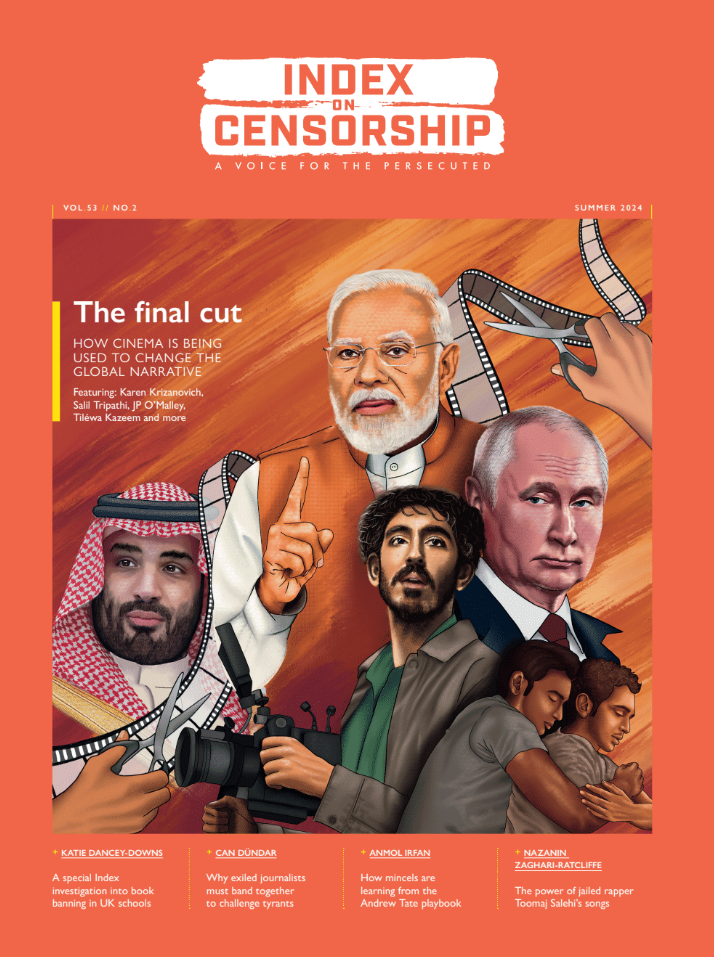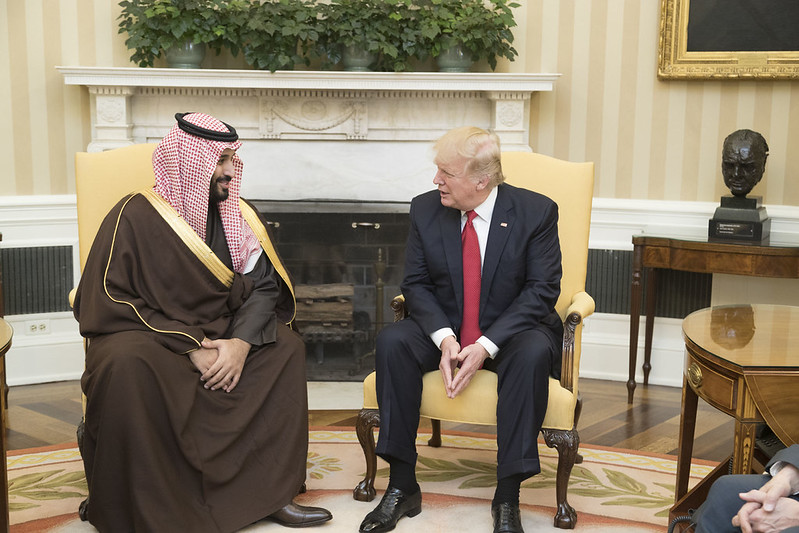Contents
The Summer 2024 issue of Index looks at how cinema is used as a tool to help shape the global political narrative by investigating who controls what we see on the screen and why they want us to see it. We highlight examples from around the world of states censoring films that show them in a bad light and pushing narratives that help them to scrub up their reputation, as well as lending a voice to those who use cinema as a form of dissent. This issue provides a global perspective, with stories ranging from India to Nigeria to the US. Altogether, it provides us with an insight into the starring role that cinema plays in the world politics, both as a tool for oppressive regimes looking to stifle free expression and the brave dissidents fighting back.
Up Front
Lights, camera, (red)-action, by Sally Gimson: Index is going to the movies and exploring who determines what we see on screen
The Index, by Mark Stimpson: A glimpse at the world of free expression, including an election in Mozambique, an Iranian feminist podcaster and the 1960s TV show The Prisoner
Features
Banned: school librarians shushed over LGBT+ books, by Katie Dancey-Downs: An unlikely new battleground emerges in the fight for free speech
We’re not banned, but…, by Simon James Green: Authors are being caught up in the anti-LGBT+ backlash
The red pill problem, by Anmol Irfan: A group of muslim influencers are creating a misogynistic subculture online
Postcards from Putin’s prison, by Alexandra Domenech: The Russian teenager running an anti-war campaign from behind bars
The science of persecution, by Zofeen T Ebrahim: Even in death, a Pakistani scientist continues to be vilified for his faith
Cinema against the state, by Zahra Hankir: Artists in Lebanon are finding creative ways to resist oppression
First they came for the Greens, by Alessio Perrone, Darren Loucaides and Sam Edwards: Climate change isn’t the only threat facing environmentalists in Germany
Undercover freedom fund, by Gabija Steponenaite: Belarusian dissidents have a new weapon: cryptocurrency
A phantom act, by Danson Kahyana: Uganda’s anti-pornography law is restricting women’s freedom - and their mini skirts
Don’t say ‘gay’, by Ugonna-Ora Owoh: Queer Ghanaians are coming under fire from new anti-LGBT+ laws
Special Report: The final cut - how cinema is being used to change the global narrative
Money talks in Hollywood, by Karen Krizanovich: Out with the old and in with the new? Not on Hollywood’s watch
Strings attached, by JP O’Malley: Saudi Arabia’s booming film industry is the latest weapon in their soft power armoury
Filmmakers pull it out of the bag, by Shohini Chaudhuri: Iranian films are finding increasingly innovative ways to get around Islamic taboos
Edited out of existence, by Tilewa Kazeem: There’s no room for queer stories in Nollywood
Making movies to rule the world, by Jemimah Steinfeld: Author Erich Schwartzel describes how China’s imperfections are left on the cutting room floor
When the original is better than the remake, by Salil Tripathi: Can Bollywood escape from the Hindu nationalist narrative?
Selected screenings, by Maria Sorensen: The Russian filmmaker who is wanted by the Kremlin
A chronicle of censorship, by Martin Bright: A documentary on the Babyn Yar massacre faces an unlikely obstacle
Erdogan’s crucible by Kaya Genc: Election results bring renewed hope for Turkey’s imprisoned filmmakers
Race, royalty and religion - Malaysian cinema’s red lines, by Deborah Augustin: A behind the scenes look at a banned film in Malaysia
Comment
Join the exiled press club, by Can Dundar: A personalised insight into the challenges faced by journalists in exile
Freedoms lost in translation, by Banoo Zan: Supporting immigrant writers - one open mic poetry night at a time
Me Too’s two sides, by John Scott Lewinski: A lot has changed since the start of the #MeToo movement
We must keep holding the line, by Jemimah Steinfeld: When free speech is co-opted by extremists, tyrants are the only winners
Culture
It’s not normal, by Nazanin Zaghari-Ratcliffe: Toomaj Salehi’s life is at the mercy of the Iranian state, but they can’t kill his lyrics
No offence intended, by Kaya Genc: Warning: this short story may contain extremely inoffensive content
The unstilled voice of Gazan theatre, by Laura Silvia Battaglia: For some Palestinian actors, their characters’ lives have become a horrifying reality
Silent order, by Fujeena Abdul Kader, Upendar Gundala: The power of the church is being used to censor tales of India’s convents
Freedom of expression is the canary in the coalmine, by Mark Stimpson and Ruth Anderson: Our former CEO reflects on her four years spent at Index






